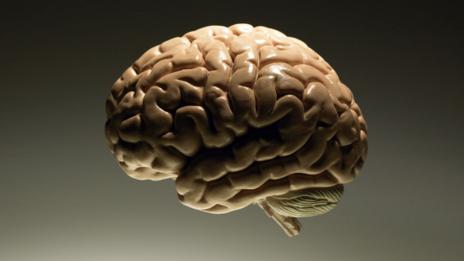Yasmin Alibhai Brown in the Independent
Tony Blair is a very busy man – so many calling on him, so little time. He had, apparently, agreed to speak at a conference on world hunger in Stockholm. Last year his very good friend Bill Clinton spoke at this same gathering, organised by Eat, a non-profit organisation set up by Swedish philanthropists. But a slight hitch came up with the Blair booking: reports suggest our erstwhile PM allegedly wanted £330,000 for a 20-minute sermon. (Clinton got £327,000 for 30 minutes.) Eat thought the fee too high, although Blair’s office insists money wasn’t spoken of and he simply had a previous engagement.
For whatever reason, Blair will not now orate stirringly on how to save the millions who live on less than 82 pence per day. Tony’s office says the money was to go to the Cherie Blair Foundation for Women. But like cheap room deodorisers, that late fragrance of good intent cannot overpower the bad smell coming from this story.
The Fifa drama is also all about money. Football does not even have a bit part. All the top men drive fast in the fog of power and wealth, without a moral compass, and still pretend that they are maligned heroes. Prince William lectures them about probity and corruption without so much as a second thought for the royal finances and tax secrecy.
This week also had Iain Duncan Smith, a fervent Catholic and man of some wealth, considering draconian child benefit restrictions. To save £2.5bn per year he wants to cut the payment from £20.70 for the first child to £13.70 – and is also looking at restricting benefits to two children. To this quiet man, poverty must be as hard to understand as godlessness.
Meanwhile, well-heeled George Osborne is to meet the Queen to review grants given to the royals. The boilers are too old, the energy bills for all those palaces too high. Unlike other pensioners, our monarch will not have to resort to hot water bottles, of that we can be sure. Nor will she visit those in her kingdom who shiver day and night, have barely enough to eat and live in rat-infested rooms.
This was also the week when Thomas Cook was humbled after failing to respond with basic humanity to the parents of two young children who died of carbon monoxide poisoning in a Corfu hotel.
I find all this alien and deeply baffling. How do the rich think? How are they so solipsistic, so self-serving and self-promoting? Are they born that way or are they raised as members of a particularly hard tribe? We must try to understand people who have it all, now that we are to be governed by a clique of the very privileged.
And so, in that spirit, I made myself read a column penned by entrepreneur Luke Johnson, son of Paul Johnson, the former editor of the New Statesman who walked briskly rightwards to become an ardent Tory.
To be successful, you need a dream team, sayest Luke, a blue-eyed dynamo and chairman of Risk Capital Partners: “First and foremost is the spouse... to provide emotional and practical backing. Self-employment can be desolate. Most entrepreneurs are obsessives, and often selfish in the pursuit of their ambitions. They require a tolerant spouse to provide relief...” Also a devoted “Super PA”. I gave up reading halfway through, because the man was so unutterably self-satisfied. Getting into these mindsets is harder than I thought.
Now, most Ugandan Asians are natural-born moneymakers. The exiles who were resented and unwanted in 1972 have made good. Many are millionaires and right wing. Like the Tory minister Priti Patel, too many of my ex-compatriots believe in self-reliance, low taxes, hard punishment and a social Darwinism. Benefits, in their view, only encourage layabouts and wastrels.
I had relatives back in Uganda who lived in grand houses, paid no tax and expected deference. Among my classmates, a few became doctors, the rest went into business and, yes, made bucks. I think I was born with a mutant gene.
Two guys with big money offered to marry me. One still hoots when he sees my Nissan Micra and always follows up with some unsolicited advice: “You are clever and very stupid. Money would make you powerful.
“All these politicians come to us. They don’t read your words – who cares about what you say? We make the world go round. You, your type, and lazy bastards on benefits make it slow down. You should be worshipping us.” So glad I didn’t marry the bald, fat scumbag.
These capitalists really do see themselves as redeemers, even those who pay their staff the lowest wages and do little to make the world a better place. Men such as Bill Gates do use their money to alleviate poverty, but they are rare.
The rest, even when they give cash, want something in return – an honour, a name on some grand wall, a PR victory. Sure, if they help the arts or the unemployed, give them the accolades and respect they crave. But what of the CEOs and shareholders who feel no social obligations, yet want more gratitude or see themselves as victims of deep ingratitude?
Tom Perkins, a US venture capitalist, complained that the recent war on the rich was like “the Holocaust”. (He later apologised.) Sam Zell, the American chief executive of an equity company – and a zealous defender of the top one per cent of global earners – says “subsidising people and disincentivising [the poor]” through benefits is the problem. Those who don’t succeed don’t want to try.
I read books on the minds and methods of the rich. They think selfishness is a virtue and that poverty (not money) is the root of all evil, that it is the end not the means which matter and that welfare for failure leads to more failure. They belong only to each other. The wider good does not exist. I see that now.
The future – political and economic – belongs to these masters of the universe. There is no alternative, no fight back. Even Labour now sucks up to them. Bleak times.
'People will forgive you for being wrong, but they will never forgive you for being right - especially if events prove you right while proving them wrong.' Thomas Sowell
Search This Blog
Showing posts with label clever. Show all posts
Showing posts with label clever. Show all posts
Sunday, 14 June 2015
Sunday, 19 April 2015
The surprising downsides of being clever
David Robson BBC Future
If ignorance is bliss, does a high IQ equal misery? Popular opinion would have it so. We tend to think of geniuses as being plagued by existential angst, frustration, and loneliness. Think of Virginia Woolf, Alan Turing, or Lisa Simpson – lone stars, isolated even as they burn their brightest. As Ernest Hemingway wrote: “Happiness in intelligent people is the rarest thing I know.” The harsh truth is that greater intelligence does not equate to wiser decisions — In fact, it can make you more foolish
The question may seem like a trivial matter concerning a select few – but the insights it offers could have ramifications for many. Much of our education system is aimed at improving academic intelligence; although its limits are well known, IQ is still the primary way of measuring cognitive abilities, and we spend millions on brain training and cognitive enhancers that try to improve those scores. But what if the quest for genius is itself a fool’s errand?

Anxiety can be common among the highly intelligent (Credit: Thinkstock)
The first steps to answering these questions were taken almost a century ago, at the height of the American Jazz Age. At the time, the new-fangled IQ test was gaining traction, after proving itself in World War One recruitment centres, and in 1926, psychologist Lewis Terman decided to use it to identify and study a group of gifted children. Combing California’s schools for the creme de la creme, he selected 1,500 pupils with an IQ of 140 or more – 80 of whom had IQs above 170. Together, they became known as the “Termites”, and the highs and lows of their lives are still being studied to this day.
As you might expect, many of the Termites did achieve wealth and fame – most notably Jess Oppenheimer, the writer of the classic 1950s sitcomI Love Lucy. Indeed, by the time his series aired on CBS, the Termites’ average salary was twice that of the average white-collar job. But not all the group met Terman’s expectations – there were many who pursued more “humble” professions such as police officers, seafarers, and typists. For this reason, Terman concluded that “intellect and achievement are far from perfectly correlated”. Nor did their smarts endow personal happiness. Over the course of their lives, levels of divorce, alcoholism and suicide were about the same as the national average.

It's lonely being smart (Credit: Thinkstock)
As the Termites enter their dotage, the moral of their story – that intelligence does not equate to a better life – has been told again and again. At best, a great intellect makes no differences to your life satisfaction; at worst, it can actually mean you are less fulfilled.
That’s not to say that everyone with a high IQ is a tortured genius, as popular culture might suggest – but it is nevertheless puzzling. Why don’t the benefits of sharper intelligence pay off in the long term?
A weighty burden
One possibility is that knowledge of your talents becomes something of a ball and chain. Indeed, during the 1990s, the surviving Termites were asked to look back at the events in their 80-year lifespan. Rather than basking in their successes, many reported that they had been plagued by the sense that they had somehow failed to live up to their youthful expectations.

Early achievers don't always go on to be successful (Credit: Thinkstock)
That sense of burden – particularly when combined with others’ expectations – is a recurring motif for many other gifted children. The most notable, and sad, case concerns the maths prodigy Sufiah Yusof. Enrolled at Oxford University aged 12, she dropped out of her course before taking her finals and started waitressing. She later worked as a call girl, entertaining clients with her ability to recite equations during sexual acts.
Another common complaint, often heard in student bars and internet forums, is that smarter people somehow have a clearer vision of the world’s failings. Whereas the rest of us are blinkered from existential angst, smarter people lay awake agonising over the human condition or other people’s folly.
Constant worrying may, in fact, be a sign of intelligence – but not in the way these armchair philosophers had imagined. Interviewing students on campus about various topics of discussion, Alexander Penney at MacEwan University in Canada found that those with the higher IQ did indeed feel more anxiety throughout the day. Interestingly, most worries were mundane, day-to-day concerns, though; the high-IQ students were far more likely to be replaying an awkward conversation, than asking the “big questions”. “It’s not that their worries were more profound, but they are just worrying more often about more things,” says Penney. “If something negative happened, they thought about it more.”

(Credit: Thinkstock)
Probing more deeply, Penney found that this seemed to correlate with verbal intelligence – the kind tested by word games in IQ tests, compared to prowess at spatial puzzles (which, in fact, seemed to reduce the risk of anxiety). He speculates that greater eloquence might also make you more likely to verbalise anxieties and ruminate over them. It’s not necessarily a disadvantage, though. “Maybe they were problem-solving a bit more than most people,” he says – which might help them to learn from their mistakes.
Mental blind spots
The harsh truth, however, is that greater intelligence does not equate to wiser decisions; in fact, in some cases it might make your choices a little more foolish. Keith Stanovich at the University of Toronto has spent the last decade building tests for rationality, and he has found that fair, unbiased decision-making is largely independent of IQ. Consider the “my-side bias” – our tendency to be highly selective in the information we collect so that it reinforces our previous attitudes. The more enlightened approach would be to leave your assumptions at the door as you build your argument – but Stanovich found that smarter people are almost no more likely to do so than people with distinctly average IQs.
That’s not all. People who ace standard cognitive tests are in fact slightly more likely to have a “bias blind spot”. That is, they are less able to see their own flaws, even when though they are quite capable of criticising the foibles of others. And they have a greater tendency to fall for the“gambler’s fallacy” – the idea that if a tossed coin turns heads 10 times, it will be more likely to fall tails on the 11th. The fallacy has been the ruination of roulette players planning for a red after a string of blacks, and it can also lead stock investors to sell their shares before they reach peak value – in the belief that their luck has to run out sooner or later.

Members of high IQ society Mensa are not immune to belief in the paranormal (Credit: Thinkstock)
A tendency to rely on gut instincts rather than rational thought might also explain why a surprisingly high number of Mensa members believe in the paranormal; or why someone with an IQ of 140 is about twice as likely to max out their credit card.
Indeed, Stanovich sees these biases in every strata of society. “There is plenty of dysrationalia – people doing irrational things despite more than adequate intelligence – in our world today,” he says. “The people pushing the anti-vaccination meme on parents and spreading misinformation on websites are generally of more than average intelligence and education.” Clearly, clever people can be dangerously, and foolishly, misguided.

People with an IQ above 140 are twice as likely to overspend on their credit card (Credit: Thinkstock)
So if intelligence doesn’t lead to rational decisions and a better life, what does? Igor Grossmann, at the University of Waterloo in Canada, thinks we need to turn our minds to an age-old concept: “wisdom”. His approach is more scientific that it might at first sound. “The concept of wisdom has an ethereal quality to it,” he admits. “But if you look at the lay definition of wisdom, many people would agree it’s the idea of someone who can make good unbiased judgement.”
In one experiment, Grossmann presented his volunteers with different social dilemmas – ranging from what to do about the war in Crimea to heartfelt crises disclosed to Dear Abby, the Washington Post’s agony aunt. As the volunteers talked, a panel of psychologists judged their reasoning and weakness to bias: whether it was a rounded argument, whether the candidates were ready to admit the limits of their knowledge – their “intellectual humility” – and whether they were ignoring important details that didn’t fit their theory.

High achievers tend to lament opportunities missed in their lives (Credit: Thinkstock)
High scores turned out to predict greater life satisfaction, relationship quality, and, crucially, reduced anxiety and rumination – all the qualities that seem to be absent in classically smart people. Wiser reasoning even seemed to ensure a longer life – those with the higher scores were less likely to die over intervening years. Crucially, Grossmann found that IQ was not related to any of these measures, and certainly didn’t predict greater wisdom. “People who are very sharp may generate, very quickly, arguments [for] why their claims are the correct ones – but may do it in a very biased fashion.”
Learnt wisdom
In the future, employers may well begin to start testing these abilities in place of IQ; Google has already announced that it plans to screen candidates for qualities like intellectual humility, rather than sheer cognitive prowess.
Fortunately, wisdom is probably not set in stone – whatever your IQ score. “I’m a strong believer that wisdom can be trained,” says Grossmann. He points out that we often find it easier to leave our biases behind when we consider other people, rather than ourselves. Along these lines, he has found that simply talking through your problems in the third person (“he” or “she”, rather than “I”) helps create the necessary emotional distance, reducing your prejudices and leading to wiser arguments. Hopefully, more research will suggest many similar tricks.
The challenge will be getting people to admit their own foibles. If you’ve been able to rest on the laurels of your intelligence all your life, it could be very hard to accept that it has been blinding your judgement. As Socrates had it: the wisest person really may be the one who can admit he knows nothing.
If ignorance is bliss, does a high IQ equal misery? Popular opinion would have it so. We tend to think of geniuses as being plagued by existential angst, frustration, and loneliness. Think of Virginia Woolf, Alan Turing, or Lisa Simpson – lone stars, isolated even as they burn their brightest. As Ernest Hemingway wrote: “Happiness in intelligent people is the rarest thing I know.” The harsh truth is that greater intelligence does not equate to wiser decisions — In fact, it can make you more foolish
The question may seem like a trivial matter concerning a select few – but the insights it offers could have ramifications for many. Much of our education system is aimed at improving academic intelligence; although its limits are well known, IQ is still the primary way of measuring cognitive abilities, and we spend millions on brain training and cognitive enhancers that try to improve those scores. But what if the quest for genius is itself a fool’s errand?

Anxiety can be common among the highly intelligent (Credit: Thinkstock)
The first steps to answering these questions were taken almost a century ago, at the height of the American Jazz Age. At the time, the new-fangled IQ test was gaining traction, after proving itself in World War One recruitment centres, and in 1926, psychologist Lewis Terman decided to use it to identify and study a group of gifted children. Combing California’s schools for the creme de la creme, he selected 1,500 pupils with an IQ of 140 or more – 80 of whom had IQs above 170. Together, they became known as the “Termites”, and the highs and lows of their lives are still being studied to this day.
As you might expect, many of the Termites did achieve wealth and fame – most notably Jess Oppenheimer, the writer of the classic 1950s sitcomI Love Lucy. Indeed, by the time his series aired on CBS, the Termites’ average salary was twice that of the average white-collar job. But not all the group met Terman’s expectations – there were many who pursued more “humble” professions such as police officers, seafarers, and typists. For this reason, Terman concluded that “intellect and achievement are far from perfectly correlated”. Nor did their smarts endow personal happiness. Over the course of their lives, levels of divorce, alcoholism and suicide were about the same as the national average.

It's lonely being smart (Credit: Thinkstock)
As the Termites enter their dotage, the moral of their story – that intelligence does not equate to a better life – has been told again and again. At best, a great intellect makes no differences to your life satisfaction; at worst, it can actually mean you are less fulfilled.
That’s not to say that everyone with a high IQ is a tortured genius, as popular culture might suggest – but it is nevertheless puzzling. Why don’t the benefits of sharper intelligence pay off in the long term?
A weighty burden
One possibility is that knowledge of your talents becomes something of a ball and chain. Indeed, during the 1990s, the surviving Termites were asked to look back at the events in their 80-year lifespan. Rather than basking in their successes, many reported that they had been plagued by the sense that they had somehow failed to live up to their youthful expectations.

Early achievers don't always go on to be successful (Credit: Thinkstock)
That sense of burden – particularly when combined with others’ expectations – is a recurring motif for many other gifted children. The most notable, and sad, case concerns the maths prodigy Sufiah Yusof. Enrolled at Oxford University aged 12, she dropped out of her course before taking her finals and started waitressing. She later worked as a call girl, entertaining clients with her ability to recite equations during sexual acts.
Another common complaint, often heard in student bars and internet forums, is that smarter people somehow have a clearer vision of the world’s failings. Whereas the rest of us are blinkered from existential angst, smarter people lay awake agonising over the human condition or other people’s folly.
Constant worrying may, in fact, be a sign of intelligence – but not in the way these armchair philosophers had imagined. Interviewing students on campus about various topics of discussion, Alexander Penney at MacEwan University in Canada found that those with the higher IQ did indeed feel more anxiety throughout the day. Interestingly, most worries were mundane, day-to-day concerns, though; the high-IQ students were far more likely to be replaying an awkward conversation, than asking the “big questions”. “It’s not that their worries were more profound, but they are just worrying more often about more things,” says Penney. “If something negative happened, they thought about it more.”

(Credit: Thinkstock)
Probing more deeply, Penney found that this seemed to correlate with verbal intelligence – the kind tested by word games in IQ tests, compared to prowess at spatial puzzles (which, in fact, seemed to reduce the risk of anxiety). He speculates that greater eloquence might also make you more likely to verbalise anxieties and ruminate over them. It’s not necessarily a disadvantage, though. “Maybe they were problem-solving a bit more than most people,” he says – which might help them to learn from their mistakes.
Mental blind spots
The harsh truth, however, is that greater intelligence does not equate to wiser decisions; in fact, in some cases it might make your choices a little more foolish. Keith Stanovich at the University of Toronto has spent the last decade building tests for rationality, and he has found that fair, unbiased decision-making is largely independent of IQ. Consider the “my-side bias” – our tendency to be highly selective in the information we collect so that it reinforces our previous attitudes. The more enlightened approach would be to leave your assumptions at the door as you build your argument – but Stanovich found that smarter people are almost no more likely to do so than people with distinctly average IQs.
That’s not all. People who ace standard cognitive tests are in fact slightly more likely to have a “bias blind spot”. That is, they are less able to see their own flaws, even when though they are quite capable of criticising the foibles of others. And they have a greater tendency to fall for the“gambler’s fallacy” – the idea that if a tossed coin turns heads 10 times, it will be more likely to fall tails on the 11th. The fallacy has been the ruination of roulette players planning for a red after a string of blacks, and it can also lead stock investors to sell their shares before they reach peak value – in the belief that their luck has to run out sooner or later.

Members of high IQ society Mensa are not immune to belief in the paranormal (Credit: Thinkstock)
A tendency to rely on gut instincts rather than rational thought might also explain why a surprisingly high number of Mensa members believe in the paranormal; or why someone with an IQ of 140 is about twice as likely to max out their credit card.
Indeed, Stanovich sees these biases in every strata of society. “There is plenty of dysrationalia – people doing irrational things despite more than adequate intelligence – in our world today,” he says. “The people pushing the anti-vaccination meme on parents and spreading misinformation on websites are generally of more than average intelligence and education.” Clearly, clever people can be dangerously, and foolishly, misguided.

People with an IQ above 140 are twice as likely to overspend on their credit card (Credit: Thinkstock)
So if intelligence doesn’t lead to rational decisions and a better life, what does? Igor Grossmann, at the University of Waterloo in Canada, thinks we need to turn our minds to an age-old concept: “wisdom”. His approach is more scientific that it might at first sound. “The concept of wisdom has an ethereal quality to it,” he admits. “But if you look at the lay definition of wisdom, many people would agree it’s the idea of someone who can make good unbiased judgement.”
In one experiment, Grossmann presented his volunteers with different social dilemmas – ranging from what to do about the war in Crimea to heartfelt crises disclosed to Dear Abby, the Washington Post’s agony aunt. As the volunteers talked, a panel of psychologists judged their reasoning and weakness to bias: whether it was a rounded argument, whether the candidates were ready to admit the limits of their knowledge – their “intellectual humility” – and whether they were ignoring important details that didn’t fit their theory.

High achievers tend to lament opportunities missed in their lives (Credit: Thinkstock)
High scores turned out to predict greater life satisfaction, relationship quality, and, crucially, reduced anxiety and rumination – all the qualities that seem to be absent in classically smart people. Wiser reasoning even seemed to ensure a longer life – those with the higher scores were less likely to die over intervening years. Crucially, Grossmann found that IQ was not related to any of these measures, and certainly didn’t predict greater wisdom. “People who are very sharp may generate, very quickly, arguments [for] why their claims are the correct ones – but may do it in a very biased fashion.”
Learnt wisdom
In the future, employers may well begin to start testing these abilities in place of IQ; Google has already announced that it plans to screen candidates for qualities like intellectual humility, rather than sheer cognitive prowess.
Fortunately, wisdom is probably not set in stone – whatever your IQ score. “I’m a strong believer that wisdom can be trained,” says Grossmann. He points out that we often find it easier to leave our biases behind when we consider other people, rather than ourselves. Along these lines, he has found that simply talking through your problems in the third person (“he” or “she”, rather than “I”) helps create the necessary emotional distance, reducing your prejudices and leading to wiser arguments. Hopefully, more research will suggest many similar tricks.
The challenge will be getting people to admit their own foibles. If you’ve been able to rest on the laurels of your intelligence all your life, it could be very hard to accept that it has been blinding your judgement. As Socrates had it: the wisest person really may be the one who can admit he knows nothing.
Thursday, 4 September 2008
Oxbridge walls that can't be scaled
Johann Hari
A blunt, blind admissions system still discriminates in favour of wealthy interview-machines
Thursday, 4 September 2008
Nothing causes a louder shriek in Britain than if you challenge the right of the rich to pass their privilege untouched on to their children. The shadow chancellor George Osborne has just decreed that the richest 1 per cent will – under David Cameron – be allowed to inherit £2 million estates they have done nothing to earn without paying a penny of it towards schools and hospitals. The "horror" of inheritance tax – introduced in the great progressive wave of the Edwardian era – will be over. This has been greeted with a gurgle of pleasure by Conservatives; why should anyone get in the way of wealth "cascading down the generations", as a Tory Prime Minister once put it?
Over the next few months, an even more tender spot for the privileged will be pressed: Oxford and Cambridge admissions. Today, a third of all Oxbridge students come from just 100 top schools. For example, half of the entire intake of £20,000-a-year Westminster School go there every year: some 410 pupils. The wealthy now have a taken-for-granted expectation that their kids will go to the best universities.
Some on the right, like the late Bill Deedes, explained this by saying the wealthy are a genetic over-class who naturally have cleverer children. But there's a hole in the side of this theory: several studies have shown that when rich people adopt kids from poor backgrounds, those children go on to do just as well.
To see how this buying of unearned privilege works, I have to introduce you to two people I know who applied to study Philosophy at the same Cambridge college as me in 1998. The first is a likeable, confident guy whose parents are wealthy businesspeople. Let's call him Andrew. They sent him to one of the most expensive private schools in Britain, and he had never been in a class larger than 12. He was trained for over a year for his Cambridge interview – a near-scientific drill that included one-on-one tuition by Oxbridge graduates, extensive rewriting of his application form "with" a teacher, and even being videoed so his body language could be analysed.
The other person, by contrast, was a chain-smoking teenager brought up on an Enfield estate by her dinner-lady mum. Laura wrote her application alone, and she had no preparation for her interview at all. None. Most of her A-level classes had 25 people in them, and were led by teachers who hadn't even got top grades themselves. Andrew got four As. Laura got an A and three Bs.
Who had demonstrated they were smarter? I'd say Laura did – but she was rejected, while Andrew got in. His training – and a lifetime in such surroundings – paid off. Laura was nervous, and her complex thoughts about Nietzsche and Hume and Russell must have appeared less polished. It was Cambridge's loss: the cleverer student got away. This isn't a stray anecdote. For too long, it was the main story. In 2006, for example, the gap between the best private schools and the best grammar schools in exam results was just 1 per cent – but the private schools students were still twice as likely to be admitted.
Here's where we get to the pressure-point. For the past few years, senior figures in Oxford and Cambridge – pressured by a Labour government – have resolved this can't go on. They want to run a university for the best, not a highbrow finishing school. So they have begun to introduce very mild reformist measures. Instead of just looking at the surface of exam and interview performance, they will judge them in the context of the student's life. They'll look at your school's average exam grades, whether your parents went to university, and the area you're from: if you got good grades at a school in Moss Side, you'll be rated higher. This is painted by huffing headmasters at private schools as "positive discrimination". But the choice is not between a system that discriminates and one that doesn't. It's between a blunt, blind admissions system that discriminates in favour of wealthy well-trained interview-machines, and a sophisticated, seeing one that snuffles out the genuinely clever.
Soon the green shoots of these new policies will become clear. Geoff Parks, Cambridge's Director of Admissions, says early indicators show there will be a "significant" increase in pupils from normal backgrounds this year. Expect a firestorm of anger. The right-wing press will rage that "middle-class" children are being "persecuted". Their definition of "middle-class" is increasingly comic: the median wage in Britain is £24,000. Half of us earn more; half of us earn less. Yet they describe as "Middle England" people who spend that entire sum every year on one child's schooling.
Often, the privileged will defend their place merely with a visceral howl of "It's mine!" For example, David Cameron's relative Harry Mount has written an angry article asking, "What's wrong with keeping Oxford within the family?" He admits his success at his interview was "staggeringly unfair" but went on to say the only problem is rich people can't buy preference for their children outright with "donations."
There will be furious predictions that Oxbridge will collapse under a "chav-alanche" of inferior students. Those of us who believe that in Britain you should be able to get to the top if you are smart need to push back hard for these changes to be stepped up. Of course Oxbridge can't get us all the way to genuine meritocracy. For that, the schools system needs to be reworked to be genuinely comprehensive, rather than the parody we have today where they are split between good schools selecting by house-price and sink schools for the rest. But even with the unequal products of that system, Oxbridge can go a lot further.
In the 1970s, when the former Conservative Prime Minister Harold Macmillan was Chancellor of Oxford University, he was amazed by the changes in the admissions process. "In my day," he said, "all they asked you was where you got your boots made." In the 2040s, we will be equally astonished that Oxbridge used to rely so heavily on interviews that give an unfair advantage to the well-drilled children of the wealthy.
Get Hotmail on your mobile from Vodafone Try it Now
Subscribe to:
Comments (Atom)